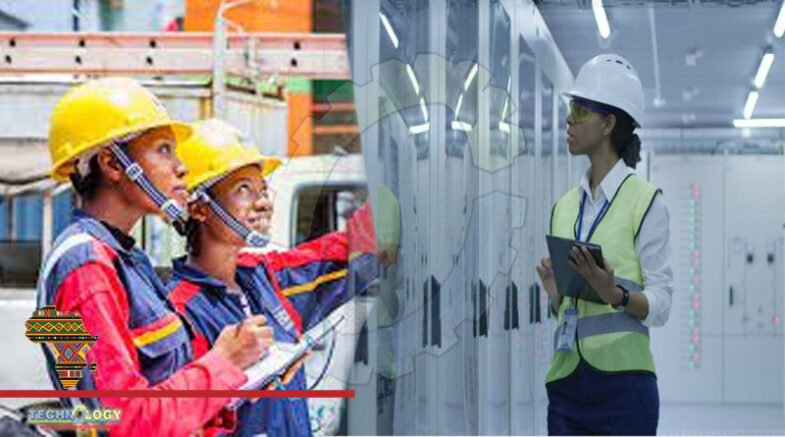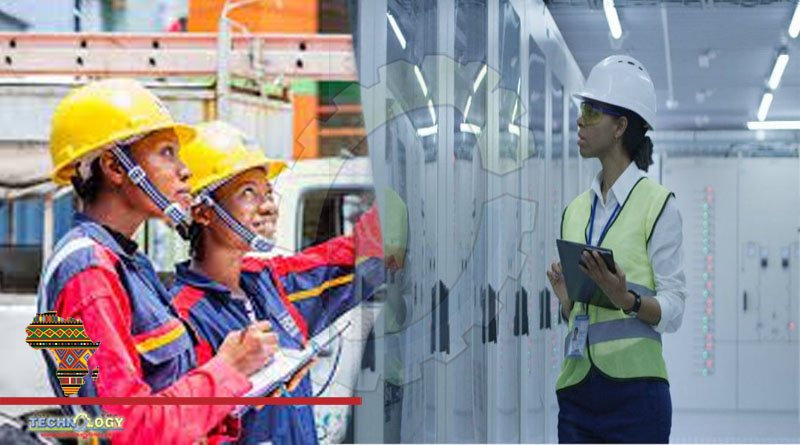Industry leaders champion the hiring of female engineers in Africa. As South Africa celebrates National Women’s Day on 9 August, 2021

As South Africa celebrates National Women’s Day on 9 August, power and automation engineering firm ABB is focusing on building a future that prioritises diversity and inclusion by championing the hiring of female engineers. Nearly half of hired engineers in the company’s electrification business in Southern Africa are female.
Jacky Mbanga, Human leaders Resources Business Partner for ABB Electrification in South Africa: “We are constantly trying to encourage more women into the programme to make sure that we have a truly diverse and reflective workforce.”
Mbanga’s role is to develop the company’s talent pool so that it is in line with and responsive to the changing needs of the business. This involves partnering with key business stakeholders to identify talent management requirements for technical and functional professionals to embed a culture of high performance. Jacky attributes her success in this regard to a love for engaging with different people, combined with the sense of fulfilment of having made a positive impact on a person’s life.
In addition to focusing on enabling a low-carbon society and preserving resources, ABB’s sustainability strategy incorporates driving social progress, equality and diversity to create safe, fair and inclusive working environments and support community building.
Encouraging women in STEM and in traditionally male-dominated environments is another key focus areas within the organisation’s sustainability strategy. Joining the existing agreement with the Society for Women Engineers (SWE), the world’s largest advocate and catalyst for change for women in engineering and technology, is one such initiative that falls under this ambit.
Furthermore, ABB’s Global Diversity & Inclusion Strategy 2030 plans to double the proportion of female managers worldwide over the next decade. With this initiative the organisation aims at achieving a 25% share of women leaders in senior management positions from currently 12.5%.
The business has made significant strides to challenge the misguided perception that women are not suitable to occupy some engineering roles traditionally reserved exclusively for males. As Mbanga explains: “We have managed to change this mindset. Most of our new women engineers came through our graduate programme and were absorbed into permanent roles. What we now need to do is to build on this success to encourage more female engineers at the senior, managerial and specialist levels.”
Highlighting inspirational role models, Mbanga points to Baratang Miya, founder and CEO of GirlHype – Women leaders Who Code, a not-for-profit that provides programming and app development training for girls and young women. Through GirlHype’s programmes, women and girls learn to code and create solutions, with fun, hands-on opportunities to engage with science, engineering, technology, arts and maths.
“There is a strong place for women in engineering, many of whom have made good careers for themselves in the sector,” notes Mbanga, pointing to Bertha Dlamini, founding President of African Women in Energy and Power. “For those who have just entered the engineering field, I encourage them to network with other female engineers through organisations like Women in Africa Power (WiAP) in order to learn from their experience and how they have managed to advance their careers.”
WiAP is a network of women and men active in the energy sector in Africa. Launched by USAID under Power Africa, the network is dedicated to advancing the role and representation of women within the energy sector across the continent.
Source Esi-Africa
